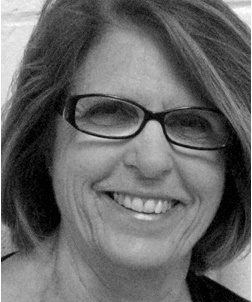SUZANNE STEAD HUSBAND ’65
 When Suzanne Stead Husband ’65 enrolled her youngest son in the Montessori Children’s House of Lansing in 1975, she had no idea at the time that her association with the school would continue for the next 33 years and beyond.
When Suzanne Stead Husband ’65 enrolled her youngest son in the Montessori Children’s House of Lansing in 1975, she had no idea at the time that her association with the school would continue for the next 33 years and beyond.
More than a decade earlier, Sue, a sociology major, recalls doing library research at Marygrove on early childhood education when prophetically, the book “The Absorbent Mind” by Maria Montessori, literally fell off the shelf into her hands. Published in 1949, the book was a breakthrough in early childhood education. The text, which defines Dr. Montessori’s child-directed learning method in a prepared environment using specially designed learning materials, convinced Sue of the unique value of this method and its principles of learning. The concepts remained with her following graduation in 1965 as she married and had children.
Two years after enrolling the youngest of her three children in Montessori Children’s House (MCH), Sue accepted the position of director of the then small Montessori preschool located in rented space of the basement at Holy Cross Church in Lansing. As the school’s children grew older, Sue and the parents of the children wanted to expand beyond educating very young children. With Sue at the helm, MCH purchased its own building and grew to include over 200 students ranging from preschool through sixth grade. Of course, none of this happened overnight. Under Sue’s careful direction, staff was extensively trained and certified in the unique Montessori methods of individualized education as each new level was added. Sue also received training at the Montessori Center in Denver, Colorado.
Governor Jennifer Granholm, referring to her youngest child’s experience at his graduation from the sixth grade at MCH wrote, “My husband and I have been thrilled to see Jack grow in traditional academic skills as well as gain a broader view of the world. He has developed a sense that he belongs and that the world is his to make better — thanks to the nurturing and respectful learning environment fostered by Suzanne Husband.”
Mary Jo White ’69 writes that Sue has always been a hands-on administrator and has been committed to promoting racial and ethnic diversity and understanding. Mary Jo recalls, “Children feel at home at MCH. I remember my own son, then about four years old, talking in the car as we drove past the school one day. ‘That’s my school,’ he said, ‘and I feel as if it’s smiling at me.’” Parents have commented that their children transition well into regular school and are very sensitive to others and to the traditions of other cultures and religions. As an example, Elva Revilla says that a young Dominican Republic boy her family hosted for surgery, wished to study in the United States, so with Sue’s help, he was enrolled at Montessori and thrived as he learned English as well as traditional academics. He now has a degree in Business Administration from Grand Valley State and has begun graduate studies. He will return home, enriched by his experience. Sue expanded the educational program to include experiential learning by participating in programs such as Meals on Wheels and Habitat for Humanity. The school had a regular ‘Meals’ route every other week. On each delivery day a couple of the children would accompany an MCH staff person to the homes of about ten housebound people. The students who participated in ‘Habitat,’ with the guidance of one of the carpenters, learned basic woodworking and were able to apply their new skills into actual on-the-job carpentry. They also painted, poured concrete and did landscaping. The kids were delighted to attend the ceremony turning the house over to the new owner. Through these experiences and other field work, their classroom and interpersonal skills were developed.
Sue retired in 2008 just as her husband engaged in a losing battle with brain cancer. Although officially retired from MCH, Sue spends about one day a week working with individual or small groups of students on conflict resolution and the concepts of “freedom and responsibility” or, in other words, “choice and consequences.” According to Sue, “Children are closer to the truth than we are.”
Since retirement, Sue is able to spend more time assisting her 89-year-old mother. She is also enjoying the outdoors—bicycling, kayaking and hiking with friends.
